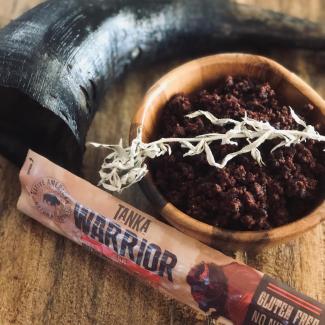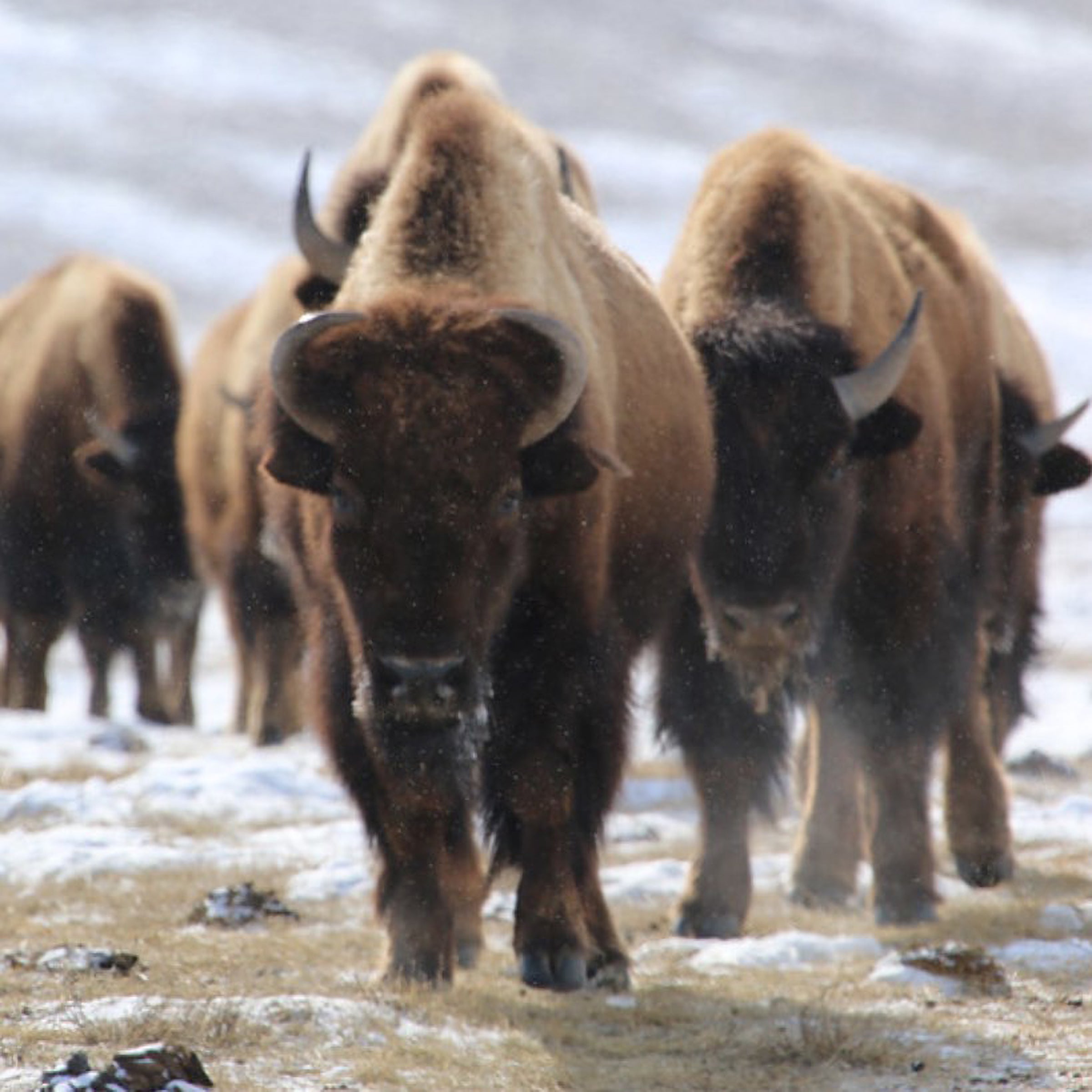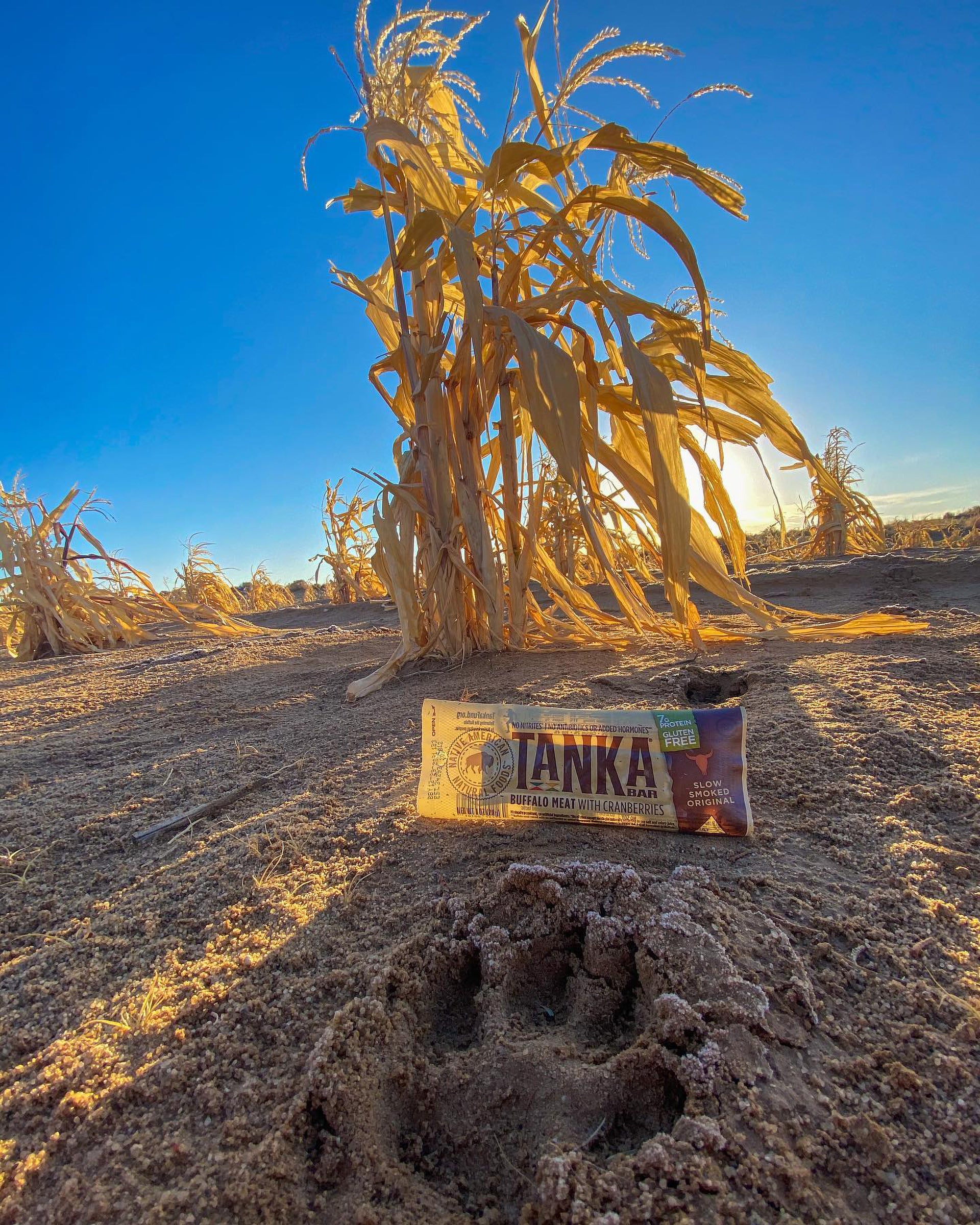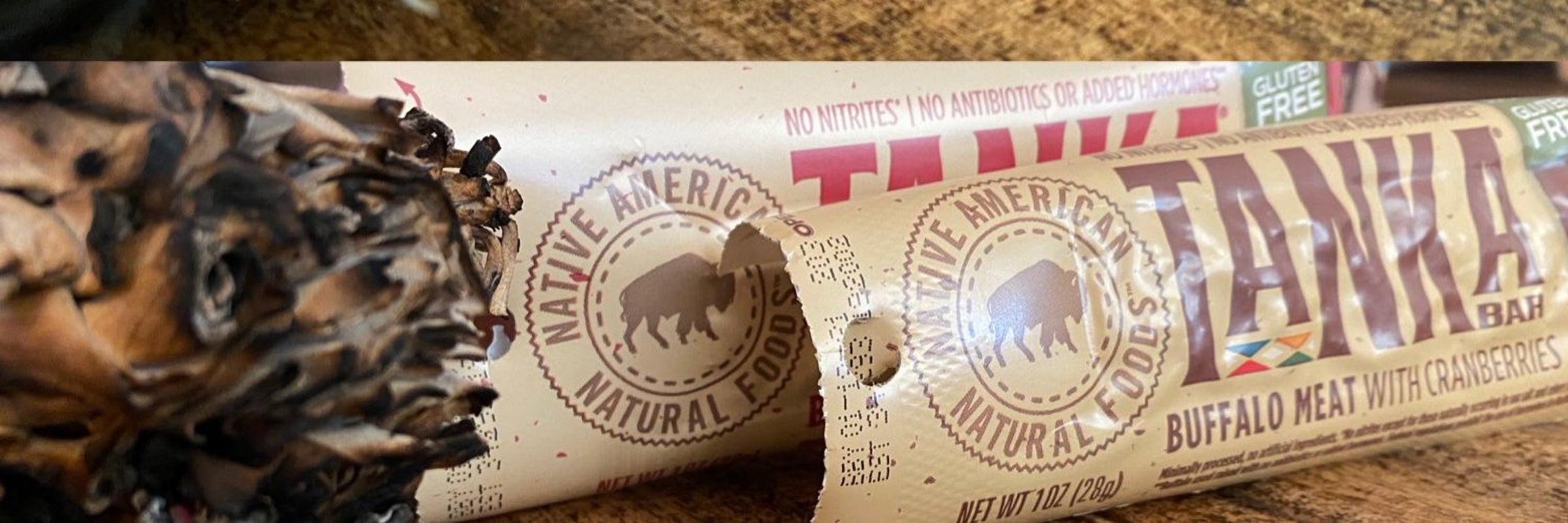
Dawn Sherman (Lakota, Shawnee, and Delaware Tribes) is the CEO of Native American Natural Foods LLC, home to the Tanka brand, a B-corp minority certified owned and minority-led company. Recently, Cultural Survival’s Indigenous Rights Radio Producer, Shaldon Ferris (KhoiSan), spoke with Sherman.
Cultural Survival: Tell us how Tanka came to be one of the most recognized Native American-owned brands.
Dawn Sherman: Native American Natural Foods was built out of the Pine Ridge Reservation, which is the people of Oglala Lakota. It was built out of the community from the ground up by two grassroots members and social entrepreneurs, Mark Tilsen and Karlene Hunter, in 2007. Tanka was the first product of its kind and it was based on a time-honored recipe that our ancestors have used (and still use to this day) called wasna. This traditional recipe was modernized by the founders and the Tanka bar was made. The bar itself is tender, savory, and sweet, and the mouthfeel that you’re getting is from the 100 percent bison. It also has tart, sweet cranberries in it. It is a blend of taking the fruit, which has high acidity, and the meat and preserving it. It’s a natural process that we used to preserve meat throughout the months in the winter to sustain us.
CS: What are the Indigenous values and principles that the company was built and operates on?
DS: In our community, bison is what we call “our sister nation.” It’s a sacred animal and we were actually born of the buffalo. There’s a sacred place in the Black Hills—we were born from that area within this cave. When we first were born, we actually came out as the four-legged, which was the buffalo. As the rest of our people came out, they stayed people, but we were told to follow the buffalo, that they are our life giver. There’s that direct correlation, because they provide our food, they provide our housing, they provide our clothing, and our economy. They sustained us.

Everything we do is to honor the buffalo. The first buffalo that was harvested with Tanka bar was donated by Parks and Rec on our reservation. It was killed ceremoniously and it was all done in prayer. Everything that we do as Tanka and ourselves comes from that creation story, because it’s always honoring the animal. We were told at the beginning of Tanka in prayer that as long as we honor the buffalo, we’ll be successful. We always instill those Indigenous values—taking care of the animals. We’re stewards, you know, we have to take care of them. And the environment. And the Earth.
Our values, especially on the Pine Ridge Reservation, are in Lakota. There are seven values that are taught throughout our generations from the elders, passed on through our families and throughout the community. These seven values are praying; respect; caring and compassion; honesty and truth; generosity; humility; and wisdom. Those are seven of the values that we really are built on and practice. The company was built from the community on the reservation in South Dakota, so those same values were embedded in the core value of Native American Natural Foods/Tanka. They are part of our company culture and who we are.
CS: Tell us about the process of manufacturing a Tanka bar.
DS: From an operational standpoint, it takes nine hours to make a Tanka bar. It is a full day, it’s carefully made. As you take the ingredients and they’re blended together, they’re formed into what you see as the bar, and then that bar is slow-smoked throughout the day. As you’re seeing that, you can imagine that bison and the cranberries and everything being mixed together and formed and then smoked. And then what comes out of that is that tender, sweet, smoky flavor.
A “day in the life” of a Tanka bar is actually more than one day. Once it gets made, it gets packaged and shipped to our distribution centers. All of this is managed by our employees. We have several employees on and near the reservation and throughout the United States, so our staff members are making phone calls, making sure everything’s getting shipped in on time to our warehouses. And from there, when our customers order it, our staff members are making sure that that’s fulfilled and shipped out on time to our customers.

The nice thing is, operationally, we’re a distance-neutral company. Because we come from an isolated area, you’ll have all the advantages and disadvantages that come from being so isolated. Making sure that we’re able to service all the communities in the United States is really important. A day in the life of operations, it’s done throughout the Nation itself, because for Indigenous communities there are no borders. We’re trying to service all communities. It starts with making a bar in one day, and then it takes another day to get it out and shipped, and then out to our customers so they can enjoy our quality product.
CS: How do you source your ingredients?
DS: We’re really careful about where we source our ingredients. We try to stick to Native American-produced ingredients because it’s more sustainable using Indigenous knowledge, and the buffalo is a sacred animal and a sustainable, regenerative food. Wild rice from the Red Lake Nation is in our sticks. You have the bison, which is prairie-fed, 100 percent buffalo, non-GMO organic. Our spices and our cranberries are organic or non-GMO, and we’re gluten free and USDA certified.
CS: The company has weathered some ups and downs, especially related to financing and investment. How have you dealt with these challenges?
DS: Being in the food industry, we know that it requires a lot of capital to be successful, especially since we were the very first to create this category with a meat and fruit bar. And with that comes all the competitors behind you. As we grew, the competition came in with a lot of money. We are very capital-intensive and privately owned on the reservation in South Dakota, trying to fulfill big goals and a big mission by returning buffalo to the lands, life, and economy of our people, bringing that economy back that was taken away from us.
As we grew, we just didn’t have the same financial backing as some of our competitors to compete in some of those big chains. Finance and capital was one of our main obstacles that we had to overcome. Throughout these last few years, it did get pretty competitive and we did struggle. But, we brought in the right partners to support us. We have great support and a great foundation and great people, a great product, and a great mission. We knew we had the recipe and the ingredients to make this successful. It was bringing the right partners in that wanted to fulfill the mission and keep us authentic, because we are the only Native American brand nationally recognized. It just took a lot of work being transparent. Partnerships move at the speed of trust. And recently we were able to close on our round of funding, as well as bringing in some other partners, such as Niman Ranch. They have been a great asset operationally, and they’re a values-based company as well as our equity partners that come in this year. So with that, we added to that recipe. Now we’re on that trajectory to grow and reclaim our space and be who we are.

CS: How do you define success for the business?
DS: I have to go back to the values of who we are, because success for us is not monetary—it’s really in taking care of the community and opening doors and providing opportunity. A successful day for us is being able to pass that knowledge down and educate somebody. With every relationship we’re building bridges to break down that isolation on the reservation. How we see success is being able to give back to our community and do what we want to do by restoring the buffalo, the land, and the economies of our people. We always look internally and say, “All right, how have we given back? What have we learned today and what’s the wisdom that we’re going to be able to pass on to everybody else?” As we grow, we just want to make sure to drive that impact back down to the communities.
CS: Please share any advice you may have for Indigenous entrepreneurs.
DS: Be resilient. You’re going to get a lot of no’s, more no’s than yes’s. So be resilient and be authentic, knowing you have a good idea and you want it to be successful and surround yourself with those people who are going to build you up. I always use this analogy: you have to face the storm. You’re going to go through a lot of hard times. The buffalo in a snowstorm, they face and walk towards the storm because instinctually they know that they’re going to come out of the storm. And that’s the advice I give everybody. Be resilient, face the storm. It’s going to be tough. But eventually, as you’re walking forward through that storm, you’re going to come out of it. So just build that support group around you, your herd, who you are. Build that herd around you.
All photos courtesy of Native American Natural Foods.
